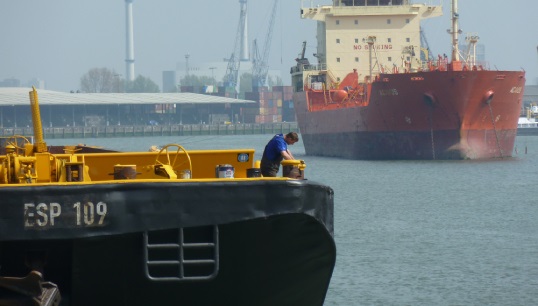- Topics
- Campaigning
- Careers
- Colleges
- Community
- Education and training
- Environment
- Equality
- Federation
- General secretary message
- Government
- Health and safety
- History
- Industrial
- International
- Law
- Members at work
- Nautilus news
- Nautilus partnerships
- Netherlands
- Open days
- Opinion
- Organising
- Podcasts from Nautilus
- Sponsored content
- Switzerland
- Technology
- Ukraine
- United Kingdom
- Welfare

In recent months, Nautilus has seen a sharp increase in individual legal cases involving members in Europe's workers inland waterways transport sector, so the Union has put together this short primer to help you, the Union, and our lawyers to enforce your rights.
Termination without notice
If you are dismissed without notice, speak to your employer and continue to stress your willingness to work, then contact Nautilus immediately!
Dismissal
Regular dismissals can occur and are legal, provided that the legal notice periods (one, two or three months, depending on years of service) are respected. Sometimes, however, dismissals count as labour violations; for example, when a company wants to get rid of disagreeable or critical employees who have otherwise delivered good work.
You should note down anything that happened in the run-up to the dismissal (such as conversations with superiors and disagreements).
Illness
There are sometimes differences of opinion about sickness onboard. Sometimes bosses refuse to send workers to a doctor immediately and demand that they stay on board and continue working. We often note that workers then leave the ship of their own accord and go home.
If you have such a dispute, please tell Nautilus. If you leave the ship, report immediately to a doctor or hospital and send the doctor's report to your supervisor straight away.
Working hours
It is a good idea to keep your own diary, independent of the time recording system onboard, and note down when you start work and when you finish work – preferably every day – plus any breaks. The Union can use this data to claim appropriate compensation for you in legal cases.
Keep a diary!
In all the cases mentioned above, it is very important to keep a notebook or diary the contains your conversations with the supervisor onboard or ashore, including the date and time. You can also save all correspondence with your employer, such as emails or messages on apps such as WhatsApp.
Tags
More articles
Have your say on inland waterway crewing rules
A public consultation has opened on European inland waterways, which could lead to new EU legislation on crewing rules.
